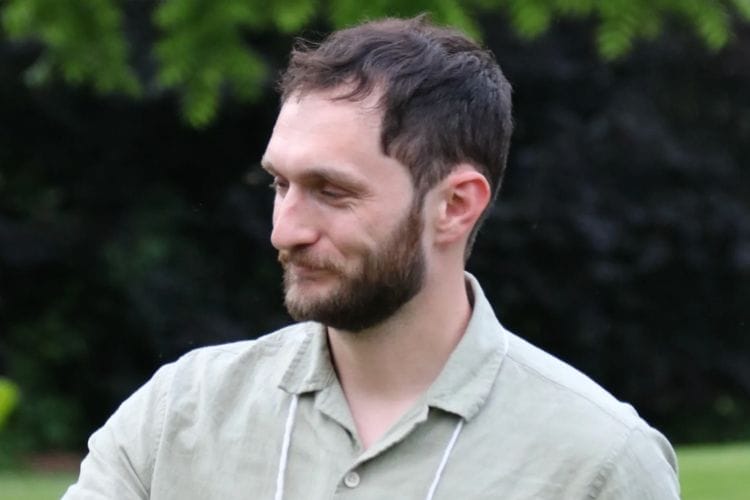Dr Vee San Cheong is a lecturer in Biomechanics at the University of Sheffield. She has been taking part in the White Rose Crucible Programme – a tailored programme bringing together future research leaders to explore career enhancement through interdisciplinary and cross-institutional research leadership and collaboration.
We asked Vee about their experiences participating in the Programme and how it’s impacted their work and career since.
Why did you want to take part in the programme?
My research experience at the Royal National Orthopaedic Hospital has shown me that interdisciplinary research is essential for developing innovative solutions to maximise patient benefit. I wanted to learn from people outside of my normal group, to offer a fresh perspective on how they see my research, improve my communication, encourage adoption of the academic advances, and disseminate research to the public. At the back of my mind, I also wanted to form lasting collaborations to solve challenging orthopaedic problems and maximise the translation of impact and outputs.
Have you experienced any “aha!” moments during the programme regarding your research or personal development?
There were many! One of the first ones was that I would be doing interdisciplinary research since I’m a bioengineer. I realised that I had confused multidisciplinary and interdisciplinary research. I was able to reflect that when my research was truly interdisciplinary – for example when we tried to understand how the mechanics affect the biology and vice-versa – we could really capitalise on their symbiotic effects to deliver maximum impact for patients.
How has the Crucible Programme provided you with dedicated time and space to reflect on your research?
The Crucible Programme required us to commit to three Labs that are 2 days long in the beautiful countryside in North Yorkshire. Being away from my normal workplace meant I blocked the time from other commitments. There were focussed sessions and discussions to learn from the facilitators and my peers. Life can be very hectic as a new academic so I really valued the walks that I went on to reflect on what I have heard and the implications for my research.
Have you identified new ways to integrate different disciplines into your current or future projects as a result of the programme? If so, what are they and how do you envision them enriching your research?
Yes, I now try to think more broadly, to see if there are commonalities in disciplines that I have not thought of previously, to try and learn their approach for solving problems. For example, many fields are concerned with risks and uncertainties, but the focus is slightly different for each. In engineering, we tend to take a bottom-up systems approach, but talking to fellow Crucible participant Sahar Hoffman (University of York lecturer in Economic Geography) made me realise that other fields take a top-down approach that include stakeholder knowledge and community perspectives. This led us to putting together a Crucible pump priming proposal to investigate how we can integrate both approaches in a case study.
“I envision this new way of thinking will help me find new ways to solve long standing problems and increase research impact.”
How has the Crucible Programme helped you expand your professional networks?
The Labs helped me to get to know emerging research leaders in the Yorkshire region. The workshops on engagement have helped me to be prepared for unexpected situations where I have an opportunity to pitch my research to a member of the public. That helped me to form links with a new industrial partner for a grant.
Have you formed any concrete collaborations with other participants as a result of the programme?
Jiannan Yang (University of York lecturer in Digital Engineering for Future Technologies) and I put in an application for a N8-CIS student internship on improving the bespoke design for orthopaedic implants that accounts for fabrication uncertainties but was unfortunately unsuccessful. We will now try to run a few joint projects with final year students to get some preliminary results first.
How do you see these new collaborations enhancing your career and increasing the impact of your research?
These collaborations have given me new ideas and introduced me to fresh approaches which I am applying to solve complex problems. I hope this will lead to new findings and solutions that will have a far-reaching impact, especially in my field of Biomechanics.
Looking ahead, how do you envision the Crucible Programme impacting your career?
The Crucible Programme has helped me to really broaden my thinking and think in a more interdisciplinary manner. It has also helped me to develop several skills that are extremely beneficial for any academic interested in interdisciplinary research, but the timing couldn’t have been better as I was awarded a UKRI Future Leaders Fellowship (FLF) after the Crucible concluded. In hindsight, the interactive sessions where I had to explain complex science to other academics who are not in my field, turned out to be very useful preparation for my FLF interview.
What advice would you give to someone considering applying for the White Rose Crucible Programme?
Be curious and open to learn. At times during the Crucible Programme, you might feel uncomfortable as you will be exposed to unfamiliar ways of thinking but stick with it.
Related news

Spotlight on Leadership: Kalliopi Keramari, a 2024 Equity Programme Delegate

Equity in Leadership: Interview with Karisha Kimone George

Spotlight on Prosper: Dr Chelsea Edmonds

Spotlight on Prosper: Dr Fred Wilson-Spencer



